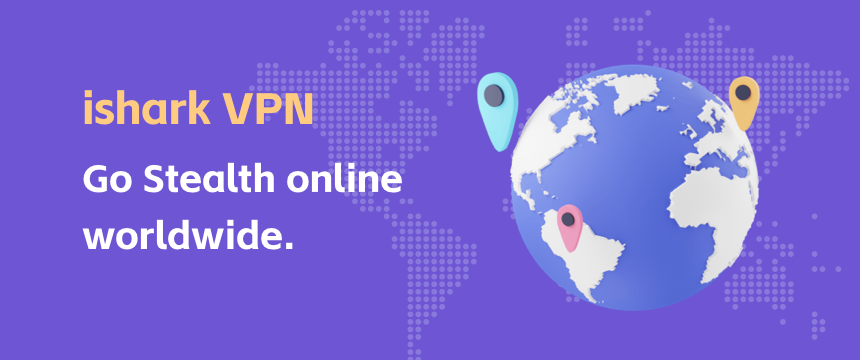Demystifying Common VPN Misconceptions: Understanding the Truth to Protect Personal Privacy
ishark blog article
With the increasing emphasis on cybersecurity and privacy, more and more users are turning to Virtual Private Networks (VPN) to safeguard their personal information and data online.
However, when using VPN, many users may harbor misconceptions and misunderstandings, which can lead to deviations in their understanding and usage of VPN.
This article aims to shed light on common VPN misconceptions, provide accurate information, and help users employ VPN correctly to ensure the security of their personal privacy and data.

I. VPN Can Provide 100% Personal Privacy Protection
Misconception: Many users believe that using a VPN can completely hide their online activities and personal information, rendering them untraceable and anonymous on the internet.
Truth: While VPN offer a certain level of privacy protection, they cannot guarantee 100% personal privacy.
VPN primarily encrypt data transmission channels, preventing hackers or ISPs from intercepting data during transit. However, they do not prevent websites or service providers from logging user data.
Users still need to exercise caution, use encrypted connections, and implement other security measures to protect their personal privacy when using VPN.
II. All VPN Are Equally Secure
Misconception: Some users think that as long as they use any VPN, their online activities and data are secure.
Truth: Not all VPN are equally secure. Some free VPN may pose security risks, such as logging user activities or selling data for profit. Opting for reputable and trusted paid VPN service providers can offer higher security and privacy protection.
III. VPN Can Bypass All Geographical Restrictions
Misconception: Some users mistakenly believe that using a VPN can bypass all geographical restrictions, whether for accessing websites, streaming content, or downloading files.
Truth: VPN can help users bypass some geographical restrictions, but not all websites and services are affected by VPN. Some websites may actively block VPN IP addresses, limiting user access. Additionally, bypassing geographical restrictions may violate the terms of use of certain websites or services, so users should exercise caution when using VPN for this purpose.
IV. Free VPN and Paid VPN Are Identical
Misconception: Some users believe that there is no fundamental difference between free VPN and paid VPN, and they can freely choose either option.
Truth: Free VPN and paid VPN are not the same. Free VPN typically impose bandwidth restrictions, may display advertisements, have lower security levels, and might log user activities.
In contrast, paid VPN provide higher security, unlimited bandwidth, better user experience, and professional customer support.

V. VPN Eliminate the Need for Other Security Measures
Misconception: Some users wrongly assume that using a VPN obviates the need for other security measures, such as antivirus software and firewalls.
Truth: VPN are essential tools for protecting personal privacy and data security, but they do not replace other security measures.
Users should still install and update antivirus software, set up firewalls, use strong passwords, and implement other security measures alongside VPN to comprehensively protect their network security.
Conclusion:
Understanding and dispelling common VPN misconceptions are crucial for using VPN correctly and safeguarding personal privacy and data security.
Users should be aware of the limitations of VPN, choose reputable paid VPN service providers, and combine other security measures to build a secure and privacy-protected online environment.









